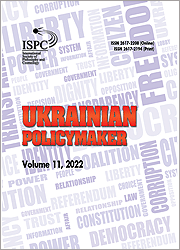The Question of ‘Japanese Populism’: Main Conceptual, Theoretical, and Empirical Issues
The Question of ‘Japanese Populism’: Main Conceptual, Theoretical, and Empirical Issues
Author(s): Leonid L. KyianytsiaSubject(s): Media studies, Governance, Politics and communication, Sociology of Politics
Published by: Международное философско-космологическое общество
Keywords: Japan; populism; Liberal Democratic Party; political ideology; political strategy;
Summary/Abstract: The present article purports to explore the significance of the Japanese case within the context of contemporary populism studies. By appraising the state of political discourse about populism both in select Japanese media and in theoretical and empirical work by political scientists in Japan and in the West concerned with the subject matter, the author seeks to summarize the state of the respective research by arguing that there are three possible ways of providing for a conceptual re-evaluation of the notion of ‘Japanese populism’, while underscoring that there are both similarities and divergences in terms of empirical manifestations of the aforesaid populism, which is duly presented through three case studies of recently most prominent Japanese politicians conceived of as ‘populists’ – Jun’ichirō Koizumi, Yuriko Koike, and Tōru Hashimoto.
Journal: Ukrainian Policymaker
- Issue Year: 11/2022
- Issue No: 11
- Page Range: 49-56
- Page Count: 8
- Language: English

